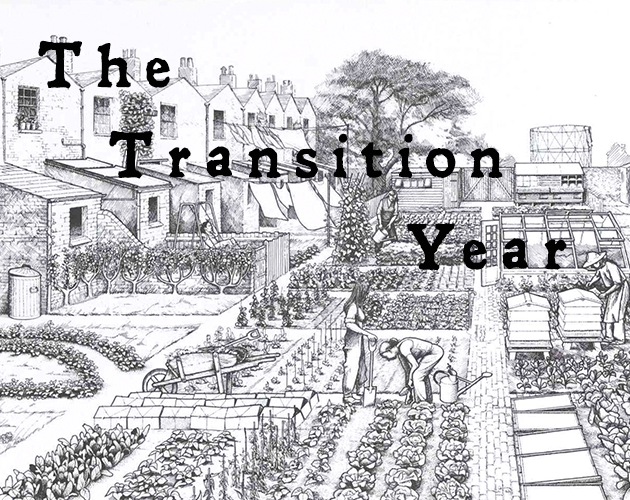
The Transition Year is a map-drawing game. This is also a story-telling game and a world-building game. You collectively explore the struggles of a community trying to transition from a life dependent on extraction and domination and build a new way of living. It is a game about community, difficult choices, solarpunk dreams and anti-capitalist futures. When you play, you make decisions about the community. Those decisions get recorded on a map that is constantly evolving and on the provided Community Record Sheets. Parts of the map are literal cartography, while others are symbolic. You will name and describe the various groups that make up the larger community, narrate the projects they embark on, the challenges they face, and roleplay them in community gatherings.
Will you be able to work together, thrive, and make substantive changes through The Transition Year? What will this community look like after a year of working toward transition? This game encourages you to consider these questions, and to play to find out what happens. Players collaborate to create and steer this community, but they will also introduce conflict and tension along the way.
Winner of the “Best Adaptation” Award in the Applied Hope: The Solarpunk & Utopias game jam 2022. Official Selection for the 2022 Meaningful Play Game Exhibition.
